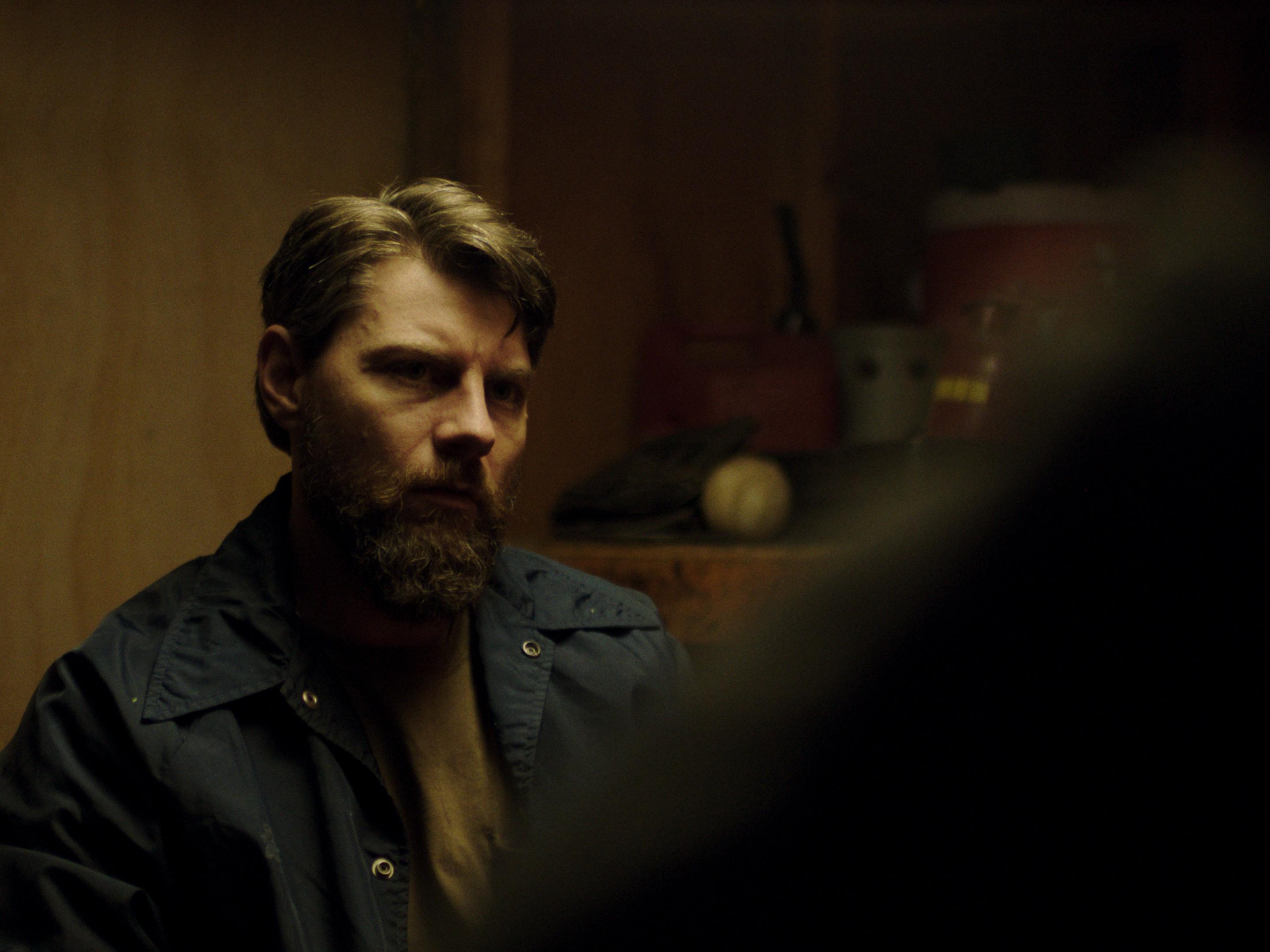What to Watch Verdict
'My Heart Can't Beat Unless You Tell It To' requires immense patience and won't be everyone's speed given how the film's empathy and sorrow rely on experience that feels double its length.
Pros
- +
🥣 Patrick Fugit conveys the weight his character shoulders.
- +
🥣 There's some intrigue around bloodlust.
- +
🥣 A family drama unlike others.
Cons
- -
🥣 Can feel like a chore.
- -
🥣 Depends on emotions that struggle to be profound.
- -
🥣 A narrative whimper.
My Heart Can't Beat Unless You Tell It To is part of our Tribeca 2021 coverage.
My Heart Can't Beat Unless You Tell It To isn't going to help defensive rants whenever I assure colleagues there's plenty of room in my collection for gradual, quieter volumes of horror cinema. Jonathan Cuartas' gloomy tale of siblings with vampiric syndromes (or adjacent afflictions at least) is a muted mumblecore endeavor that amounts to the intensity of a whisper. There's blood in serving bowls, a sickly teenager, but assertions of the supernatural barely muster the bluster of Dracula on sedatives. That's not the point, I know, since Cuartas' narrative is about family values and the imprisonment of commitment bound to heritage, not Blade raves—it's never about conflating desires with a filmmaker's intentions, but more the untenable pace at which execution slithers.
Patrick Fugit stars as Dwight, alongside Ingrid Sophie Schram as his waitress sister Jessie. Their predicament is unenviable since brother Thomas (Owen Campbell) requires blood as sustenance and cannot survive daylight. Dwight lures homeless targets with claims of hospitality only to slit their necks and drain crimson juices, but it's a lifestyle with no forgiveness. Thomas just wants to spend time with children his own age, except Jessie only allows the emaciated teenager to mull around their dwelling after dark. All Dwight wants is to escape, and Thomas craves normality, but bloodline devotion has become both their anchors.
We are trapped with Dwight, as Fugit sells the exasperation and exhaustion of enduring an existence he never asked to burden. My Heart Can't Beat Unless You Tell It To isn't about a thirsty nocturnal adolescent becoming something dangerous under the moonlight. Instead, Cuartas emphasizes Dwight only finding affection in paid prostitute visitations or the soul-sucking toll each murder takes on his conscience. Fugit's physique is downtrodden and slouched, his persona drained bone-dry of happiness or excitement or mortal wonder—a problem not in performance but the film's resistance to exceptionality around every corner.
Issues stem from the utter tediousness and generic blueprints at the core of My Heart Can't Beat Unless You Tell It To. Aside from scant karaoke distractions, Cuartas is telling a story we've seen in movies like The Revenant, Midnight Son, Let The Right One In, and countless other independent genre twists on caretakers who slay innocents in the name of family, friends, or love. There's nothing grand nor revelatory from a narrative standpoint beyond Thomas' wishes to engage in youthful games or heightened anxieties despite Jessie and Dwight's endangerment. Cuartas' dramatic flare is one note that barely registers between muttered dialogue or disinteresting conflicts that revolve around a blood-slurping unknown wrapped in blankets. The tragedy never howls with resonance, rendering whatever commentaries on living a passionate life or wasting away markedly impotent.
As Thomas begins resenting his confinement, or Jessie becomes antagonistic towards Dwight on account of his unhidden desires to flee, My Heart Can't Beat Unless You Tell It To never sensationally climaxes. The purgatorial hellishness that Dwight, Jessie, and Thomas entertain flows like a stream that rarely gurgles, as cinematography and scoring are like some "forlorn indie director's" starter kit. The mood is contemplative, but it's an uninteresting dance around a thesis statement that's been analyzed ad nauseam beyond broad strokes and Eeyore glances before inevitability blinds the audience—no twists, no shocks.
The intersection of devotion and damnation is a fine line drawn in salt, but My Heart Can't Beat Unless You Tell It To never makes the most or even a fraction of its genre freedoms. Jonathan Cuartas explores wanderlust fantasies, illness impairment, and the consequences of choice in a way that's lacking vital expressions. There's nothing that ever sets Dwight's plight apart from a billion other heartbreaker festival hopefuls (not even a tight 4:3 aspect ratio), nor does the emotional impact linger beyond a few second's worths of recognition. That's the culminating shame. It's not that I think Cuartas has nothing to say—more how the cinematic prose he chooses is about as inviting as melatonin and its soggy, sluggish trudge will lose like-minded audiences despite promises of corpses and the hardships of living with a vampire roommate.
The latest updates, reviews and unmissable series to watch and more!
Matt Donato is a Rotten Tomatoes approved film critic who stays up too late typing words for What To Watch, IGN, Paste, Bloody Disgusting, Fangoria and countless other publications. He is a member of Critics Choice and co-hosts a weekly livestream with Perri Nemiroff called the Merri Hour. You probably shouldn't feed him after midnight, just to be safe.


